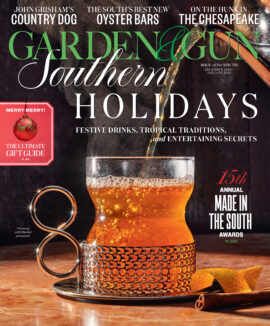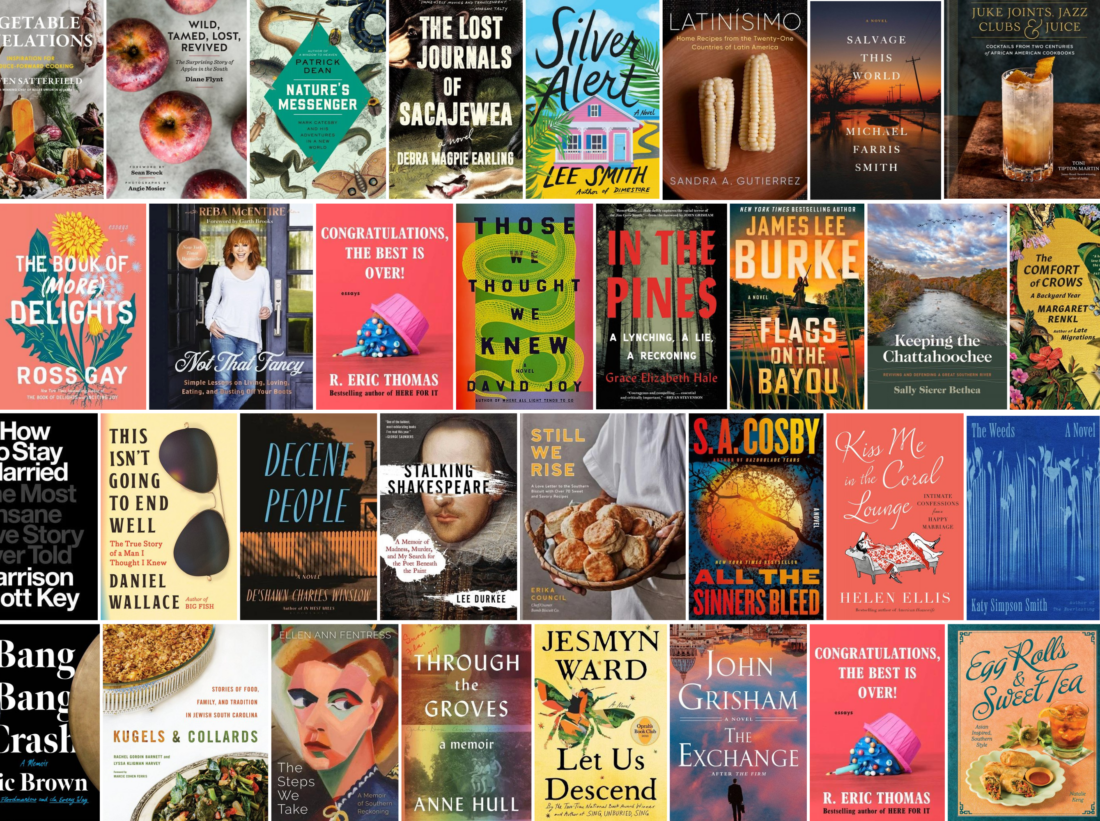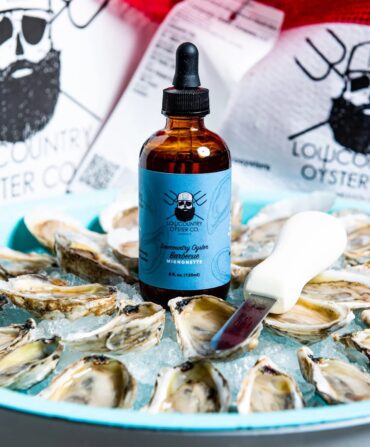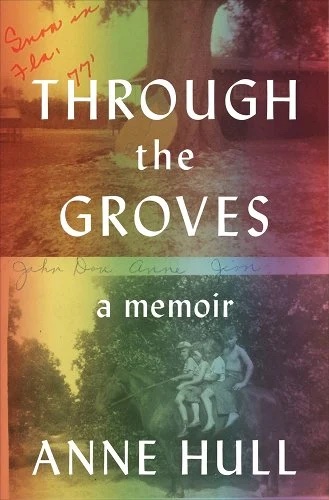
Through the Groves, by Anne Hull
“Almost nothing in Florida stays the way it was,” the journalist Anne Hull writes in this lyrical memoir. “It’s bought, sold, paved over, and reimagined in a cycle that never quits.” “Through the Groves might be a tender evocation of change at the speed of Florida, but it’s one that rewards slow savoring,” writes Jonathan Miles in his review.
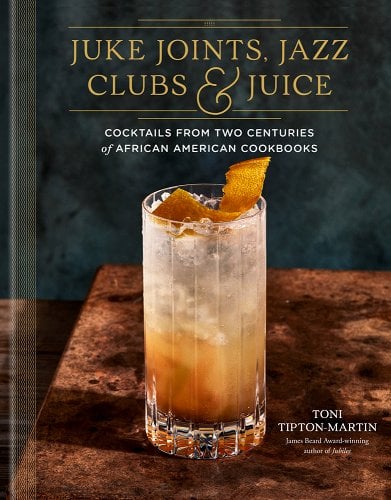
Juke Joints, Jazz Clubs, and Juice: Cocktails from Two Centuries of African American Cookbooks, by Toni Tipton-Martin
Few people tell a food or drink story like the culinary historian and journalist Toni Tipton-Martin does, combining fascinating scholarship with effervescent writing and downright mouthwatering recipes—in this case, for my favorite sort of indulgence: the liquid kind. Black mixologists and tipple torchbearers get their due here, from pre-Prohibition cocktail king Tom Bulloch to “Louis One-Three” proponent T-Pain. I have big plans for the jerk-spiced Bloody Mary. —Amanda Heckert, executive editor
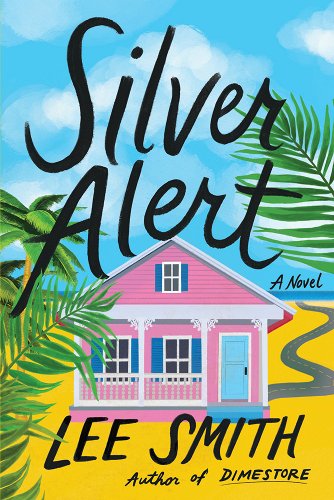
Silver Alert, by Lee Smith
Silver Alert is classic Lee Smith: laugh-out-loud funny and deeply moving, full of endearing, complex characters who become real people to the reader. This story of an elderly man who takes “one last joy ride” in his Porsche—with a young, mysterious manicurist aboard—is a lovely, raucous look at life in Key West, growing old, and unlikely friendships. —Silas House, author and contributor, who this year wrote a G&G profile of his mentor Lee Smith
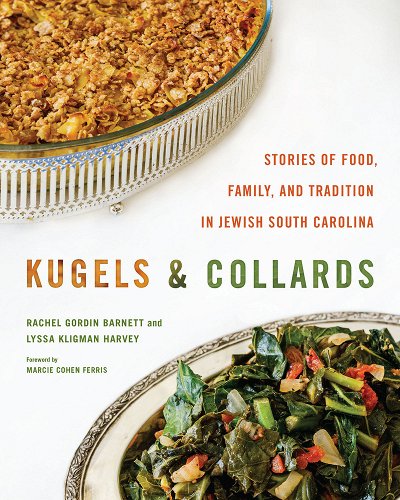
Kugels and Collards: Stories of Food, Family, and Tradition in Jewish South Carolina, by Rachel Gordin Barnett, Lyssa Kligman Harvey
Jewish history runs deep in the South, and the authors of this new cookbook thought of a genius way to share and celebrate that legacy—by engaging our taste buds. They invite readers to pull up a chair around Jewish family tables, go behind the counter at long-running businesses throughout the region, and try such classic recipes as stuffed cabbage and modern spins like grits and lox casserole. —CJ Lotz Diego, senior editor
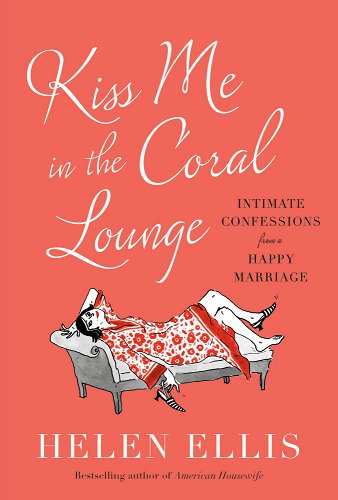
Kiss Me in the Coral Lounge, by Helen Ellis
When reading Helen Ellis’s essays—whether for G&G, or in her previous collections Southern Lady Code and Bring Your Baggage and Don’t Pack Light—I inevitably end up texting my best friends the lines that make me literally LOL. (In Baggage, that included a Panama City Beach waterpark-goer telling Ellis she should ride a ride only “if you want to taste the crotch of your own bathing suit.”) The same went for Coral Lounge, in which she turns her gimlet eye on marriage. —Amanda Heckert

How to Stay Married, by Harrison Scott Key
Harrison Scott Key’s first book, The World’s Largest Man, is one of the funniest memoirs I’ve ever read, a perennial favorite in the class on Mississippi writers I teach at Ole Miss. His second book (which is about writing the first book) is somehow even funnier than the first. In his third, he brings all his humor-writing skills, but this time the topic is the least funny thing imaginable: infidelity, and the near breakup of his marriage after he discovered his wife was having an affair with a neighbor. Harrison is a writer of tremendous humor and heart. —Beth Ann Fennelly, author and contributor

Not That Fancy: Simple Lessons on Living, Loving, Eating, and Dusting Off Your Boots, by Reba McEntire
For a country superstar who rocks plenty of rhinestones onstage, McEntire keeps it decidedly real back on her ranch in Oklahoma. I like a lifestyle guide that has a sense of humor, and I know I’ll be trying her recipes for comfort-food hits such as pinto beans and cornbread, chicken-fried steak, and spicy chow-chow relish. Okay, a few of the eight cocktail recipes, too. —Steve Russell, contributing editor (read his interview with McEntire and find more of her recipes here)
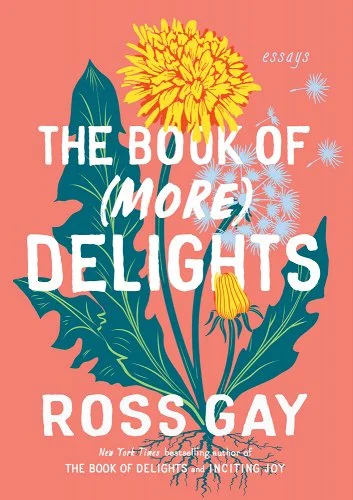
The Book of (More) Delights, by Ross Gay
By popular demand, Ross Gay is back, better than ever, continuing his best-selling chronicle of a new year’s worth of his observations of delight. This time he swings his basket higher, slower, for a whole new bevy of brainy and witty noticings, not just from his garden but from paper menus and pawpaws to the unexpected adoration of a small dog. —Aimee Nezhukumatathil, contributor
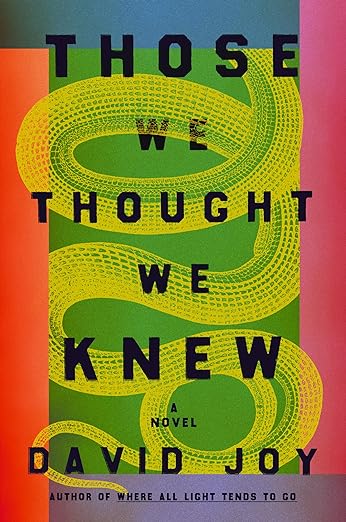
Those We Thought We Knew, by David Joy
He’s one of my favorite writers—gripping, gritty, suspenseful, and fearless—and this book looks to tackle some big-time subjects as they play out in a small North Carolina mountain town, including racism, community, and the weight of history. —Dave Mezz, deputy editor

Latinísimo: Home Recipes from the Twenty-One Countries of Latin America, by Sandra A. Gutierrez
I’m often asking my students to push the borders on where they consider “the South” to be, so that we can talk more about the Indigenous and Spanish influences on what we have termed “Southern” life, and how their cooking techniques and flavor combinations enhance what we define as “Southern” food. I have started taking that approach to my cooking, constantly heading further south on the continent in order to try new-to-me flavors. —Latria Graham, contributing editor and visiting scholar at Augusta University
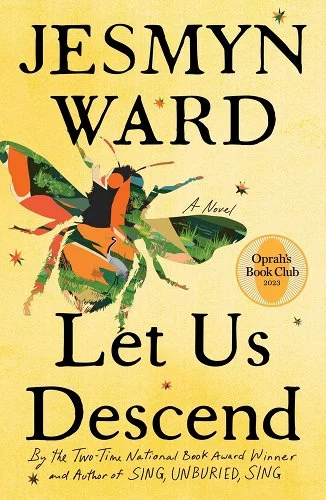
Let Us Descend, by Jesmyn Ward
Where Jesmyn Ward’s words go, we follow. Across her first novels, the two-time National Book Award winner wrote her way through contemporary Mississippi. But her shatteringly beautiful new book dips into the dark days of the antebellum South. As Annis, an enslaved young woman, journeys from North Carolina rice fields to New Orleans, and then is sold to a sugarcane plantation, ancestral spirits brush against her in the night—or perhaps that nudge is the memory of her mother’s warmth. Or the lingering honey taste of stolen kisses. Or the whispered secrets of cypresses in the runaway woods. In yet another Ward masterwork, pain and sweetness alike haunt Annis. But she keeps walking. —CJ Lotz Diego
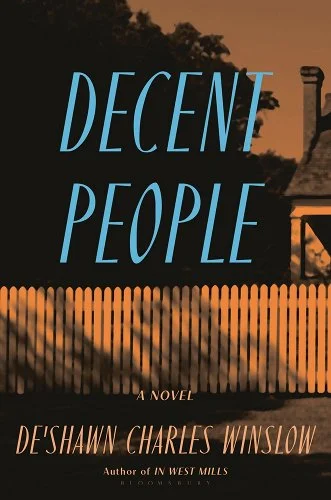
Decent People, by De’Shawn Charles Winslow
I loved De’Shawn Charles Winslow’s new novel, Decent People, a murder mystery set in small-town North Carolina that features issues that are surprisingly relevant despite the novel being set in 1976. —Wiley Cash, author and contributor
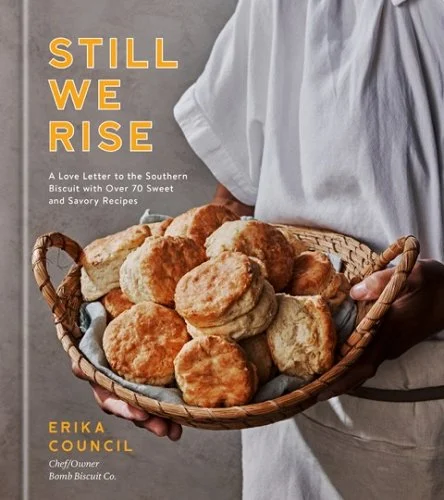
Still We Rise: A Love Letter to the Southern Biscuit with Over 70 Sweet and Savory Recipes, by Erika Council
I admit bias right away as I eagerly recommend Erika Council’s biscuit cookbook. We’re friends and we make biscuits together at food festivals sometimes. She is the boss, I am the sidekick. Her grandmother Mildred Council was opening Dip’s Country Kitchen in the same building as us when we were opening Cat’s Cradle back in the early seventies, so I go back forever with her family. I made her whole milk biscuits for my lunch yesterday. —Bill Smith, chef and contributor
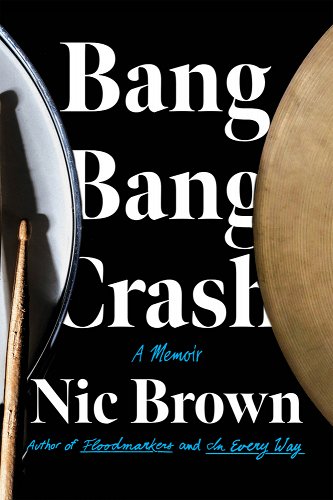
Bang Bang Crash, by Nic Brown
The story of youthful dream chasing is universal, but the specifics are so charming in Nic Brown’s music memoir that you’ll time travel to 1990s North Carolina, cheering for a high school rock band that’s just trying to make it big in Greensboro. In a nostalgia-rich ode to optimism, the former drummer—now writer, Clemson professor, and G&G contributor—chronicles his teenage band Athenaeum’s rise to the Billboard charts after house party gigs at N.C. State and shows at Greensboro’s Blind Tiger. The joyous read reminds us that when art, whether song or story, leaves its maker’s hands, it becomes something bigger, something that belongs to every fan. —CJ Lotz Diego
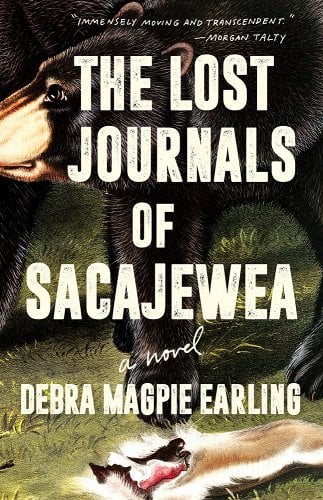
The Lost Journals of Sacajewea, by Debra Magpie Earling
I love anything from Milkweed Editions, and some of my favorite books (Braiding Sweetgrass and Late Migrations) have come from their press. I loved The Lost Journals of Sacajewea, a novel from author Debra Magpie Earling, who’s a member of the Bitterroot Salish. We all know the story of Sacajewea from the perspective of Lewis and Clark, but Earling reframes the narrative around Sacajewea’s voice. —Gabriela Gomez-Misserian, digital producer

Congratulations, the Best Is Over!, by R. Eric Thomas
R. Eric Thomas’s writing has brought me such joy over the years. I first encountered his jubilant, indelible voice in Elle, where he opined about such topics as Aretha Franklin fighting with Dionne Warwick over fax. In this follow-up to his first terrific book of essays, Here for It: Or, How to Save Your Soul in America, Thomas takes us on his at turns hilarious and heartbreaking journey back to live (and garden) in his hometown of Baltimore. —Amanda Heckert

Flags on the Bayou, by James Lee Burke
No one can word-sketch an eerily beautiful scene quite like the living legend James Lee Burke, whether he’s describing bloodred bougainvillea dripping off ironwork in New Orleans or fog shrouding the Mississippi. In his latest novel, Flags on the Bayou, Civil War–era Louisiana provides the turbulent backdrop for a murder accusation, skirmishes, blossoming love, and the specter of a storm over the Gulf. —CJ Lotz Diego
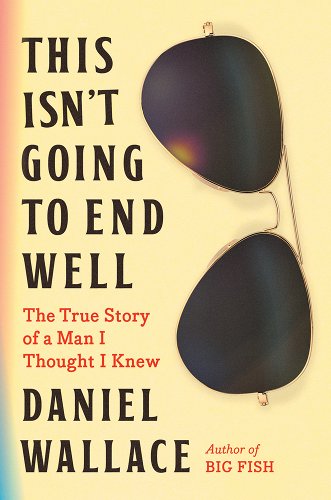
This Isn’t Going to End Well, by Daniel Wallace
When I picked up Daniel Wallace’s memoir This Isn’t Going to End Well, I had no idea the book was about the star-crossed counterculture icon and whitewater river artist William Neely, of whom I was a fanboy as a UNC–Chapel Hill student and whitewater paddler in his heyday of the 1980s. But even without the personal connection, I would have been caught in the powerful hydraulics of this story, a journey through one of those friendships marked as much by rapids and danger as by love and trust. —T. Edward Nickens, contributing editor
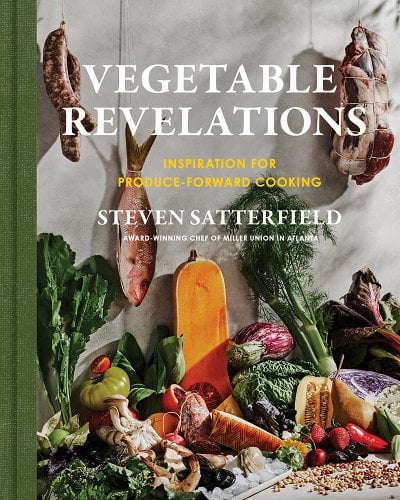
Vegetable Revelations, by Steven Satterfield
I must confess that I have always been in awe of Steven’s cooking. I have long wondered how he can take something as humble as celery or a rutabaga and turn it into something so sublime. With this book he is revealing his secrets. Don’t be surprised if I end up stealing a recipe or two. —Vishwesh Bhatt, chef and author
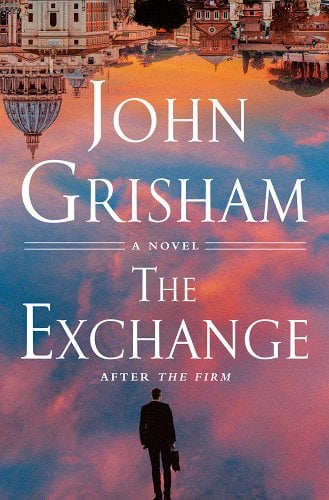
The Exchange: After the Firm, by John Grisham
“For years around our house,” John Grisham said in an interview with G&G, “we would measure time by BF and AF—before The Firm and after The Firm.” This year, three decades after readers followed hotshot young lawyer Mitch and his wife, Abby, as they accepted a dangerously too-good-to-be-true offer in Memphis, Grisham released the sequel. That book, The Exchange, kicked off our new book club, G&G Reads. Watch the author in conversation with Jonathan Miles at the G&G offices.
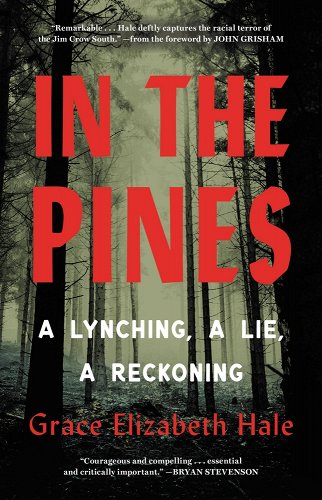
In the Pines: A Lynching, a Lie, a Reckoning, by Grace Elizabeth Hale
In an unsparing and often painful account, Hale pieces together the truth behind a family myth centered on Oury Berry, her grandfather who had served as sheriff of rural Jefferson Davis County in the Piney Woods of Mississippi in the 1940s. Read Jonathan Miles’s full review here.
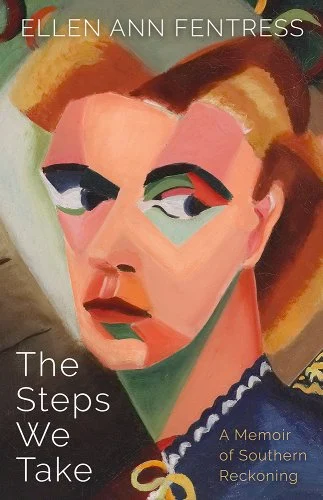
The Steps We Take: A Memoir of Southern Reckoning, by Ellen Ann Fentress
“The Mississippi filmmaker and journalist Ellen Ann Fentress is a raconteur—sly, witty, with a prose style that’s almost always fizzing. (‘Home remodeling is like finding the love of your life,’ goes one line in this book. ‘If it happens to you all the time, something is wrong.’) But her earnest and penetrating examinations of race give this book its heft and urgency.” Read Jonathan Miles’s full review here.

Wild, Tamed, Lost, Revived: The Surprising Story of Apples in the South, by Diane Flynt
For my eighth birthday, a friend gave me one of the best and most precocious presents I’ve ever received: a tasting box of apples, full of Honeycrisps and Granny Smiths, along with some lesser-known heirlooms like Arkansas Blacks, Albemarle Pippins, and a little green variety we soon discovered bounced when thrown off the top of the playground (even a bit bruised, it still tasted delicious). Still one of my most beloved diet staples to this day, apples hold so much Southern history and lore, which Diane Flynt delves into in her new book. Less cookbook and more storybook, Wild, Tamed, Lost, Revived tracks the “rise and fall of Southern apples,” simultaneously uncovering a mostly uncharted aspect of the South’s agricultural and culinary tradition. —Caroline Sanders Clements, associate editor

Stalking Shakespeare, by Lee Durkee
An intensely readable book with bust-out-laughing moments, Stalking Shakespeare recounts the Mississippi novelist Lee Durkee’s Adderall-fueled spiral into Elizabethan portraiture obsession, his darkest inner monologues while holed up in a Vermont fishing shack, and the daring trip he took to London to find answers for himself. —CJ Lotz Diego
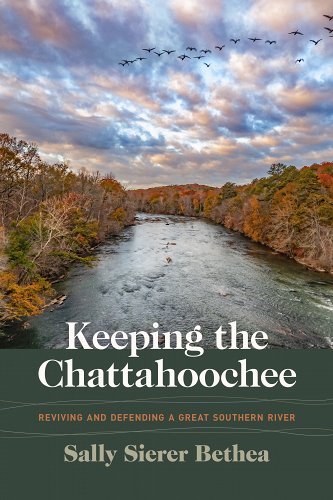
Keeping the Chattahoochee: Reviving and Defending a Great Southern River, by Sally Sierer Bethea
In my years living in Atlanta, few conservation-minded folks inspired me like Sally Sierer Bethea, the founding director of the Chattahoochee Riverkeeper. Since 1994, the nonprofit has worked to protect the mighty river that runs through the city and its sprawling watershed, with Bethea acting and advocating as riverkeeper for two of those decades. —Amanda Heckert
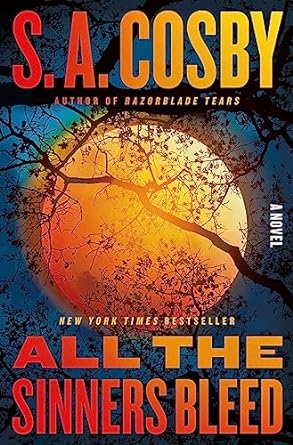
All the Sinners Bleed, by S. A. Cosby
“On the Southern noir scene, S. A. Cosby delivers his fourth book, the taut and riveting whodunit All the Sinners Bleed, which follows Titus, the first Black sheriff in a small Chesapeake Bay community, as he faces down raw evil while keeping his soul intact,” CJ Lotz Diego writes in G&G. “He blew the doors off with Blacktop Wasteland,” contributor Wiley Cash adds, “and his new novel shows every sign of doing the same.”
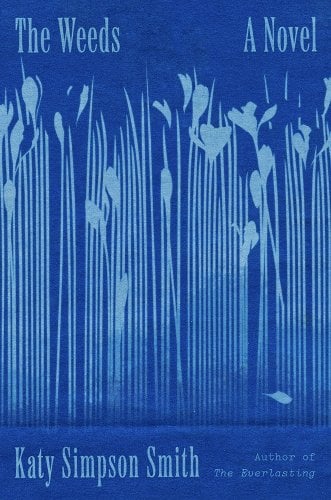
The Weeds, by Katy Simpson Smith
Garden lovers will delight in this roving, fascinating novel that follows a Mississippi woman who discovers the unexpectedly rich plant world of the Roman Colosseum. Smith wrote a beautiful ode to what she learned about writing from her mother’s garden, and now I’ll read anything with her name on it. —CJ Lotz Diego
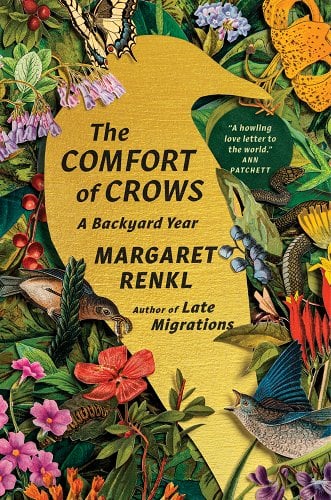
The Comfort of Crows, by Margaret Renkl
As an artist, writer, and amateur gardener, I’m always stopping to find beauty and creativity in everyday moments. Whether walking in the park, tending to my honeysuckle vines, or watching chickadees crush seeds on the branches outside my window, I feel very seen and understood by voices like Margaret Renkl who break down the hierarchical barriers between humans, plants, animals. Her latest book, The Comfort of Crows, captures memories of childhood and adulthood exploring nature with the reverence of Mary Oliver’s Devotions, dividing the length of the book into fifty-two “weeks,” starting with winter. Stunning collages from her brother, Billy Renkl, introduce each chapter with the likes of cutout foxes, botanical illustrations, and pileated woodpeckers in flight. —Gabriela Gomez-Misserian, digital producer
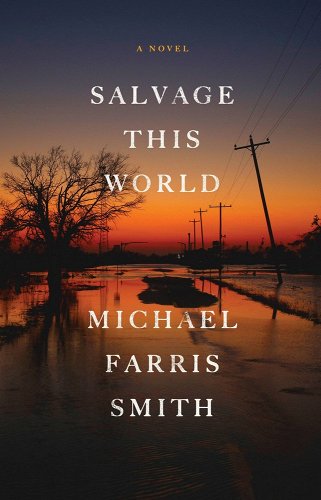
Salvage This World, by Michael Farris Smith
Salvage This World is a storm-tossed and demagogue-haunted book, set in a land of strip malls and thrift stores, in which a mother and child struggle to make their way through the literal and metaphorical dark. —John T. Edge, contributing editor
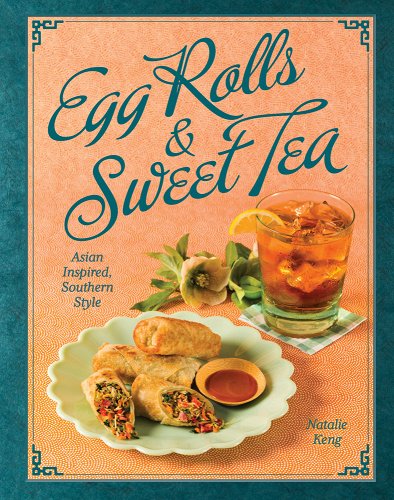
Egg Rolls & Sweet Tea: Asian Inspired, Southern Style, by Natalie Keng
“Keng melds the heritage of her Taiwanese parents, who immigrated to Georgia in the 1960s, with the Southern fare they came to adore,” writes Jonathan Miles. “Keng’s fried chicken goes into spring rolls, rather than biscuits, which she swirls into honey. She boils what her mother called ‘dirt beans’—the Mandarin translation for peanuts—with cinnamon sticks, star anise, muscovado sugar, and a glug of soy sauce.” She shared her oven-baked country bacon and collard egg rolls with G&G readers here.
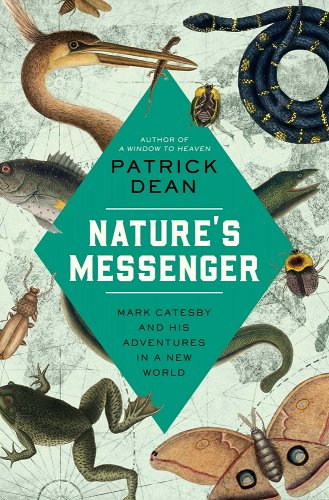
Nature’s Messenger, by Patrick Dean
I loved the piece Patrick Dean wrote about Mark Catesby, an early naturalist that Dean argues is ready to come out from the shadow of the more-famous John James Audubon. In this book-length exploration of the topic, Dean shares lots of adventurous anecdotes and botanical illustrations. —CJ Lotz Diego
Garden & Gun has an affiliate partnership with bookshop.org and may receive a portion of sales when a reader clicks to buy a book. All books are independently selected by the G&G editorial team.

